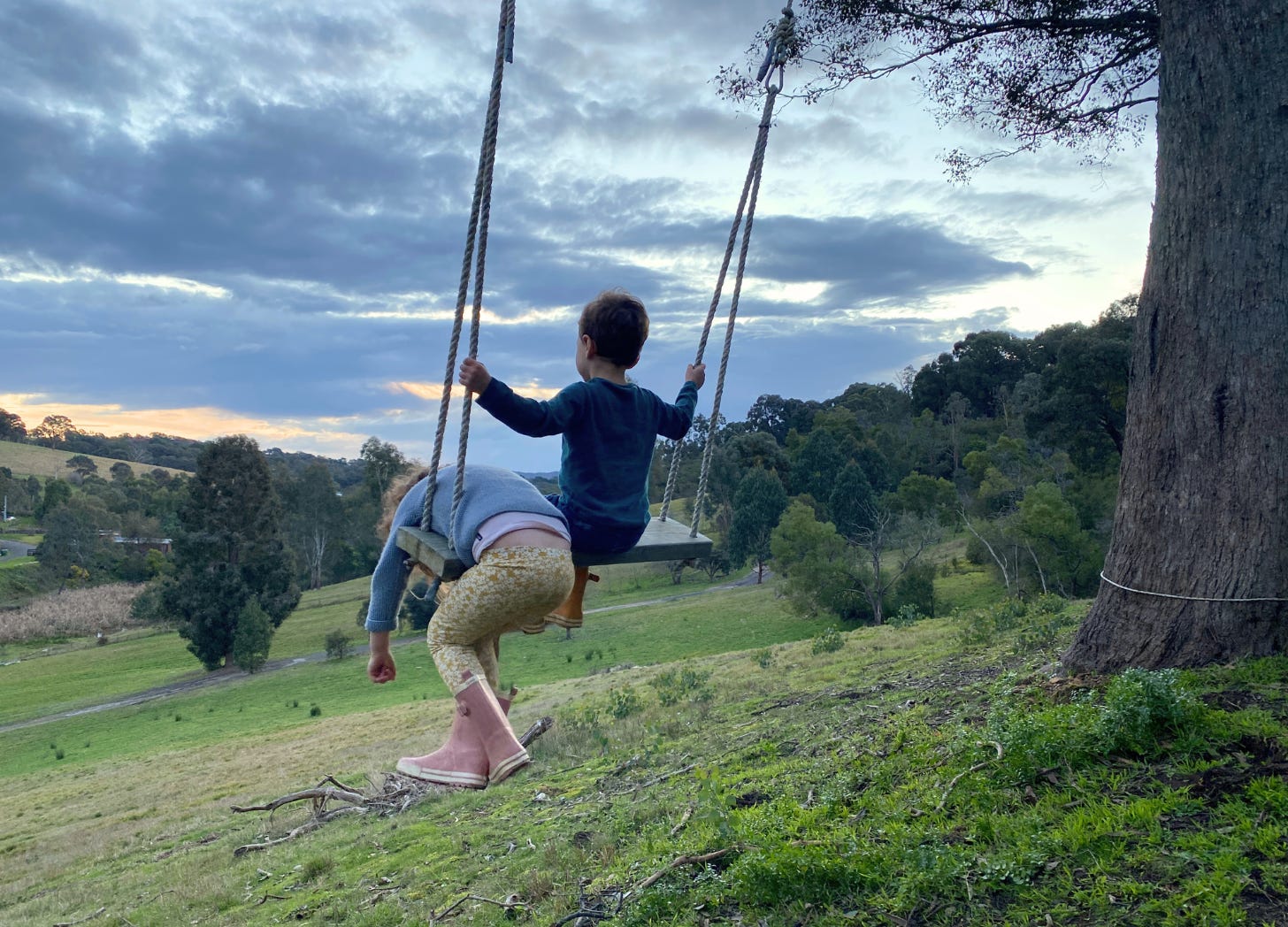This isn’t what Maxine and Cheryl expected when they launched their First Cheque podcast series, but here we are.
I’m a parent first, and a venture enthusiast second. So while I continue absorbing their investing insights, which will undoubtedly serve me an aspiring VC, I was initially struck with some incidental parenting advice.
First Cheque’s first two episodes begin with some reflection on how guests’ upbringings have influenced their risk appetite. And it stayed in the back of my mind as they were discussing the nuances of leading rounds and direct to consumer (D2C) opportunities.
As a well-researched parent and former early-childhood leader, I know the benefits of supporting kids to take risks: resilience, self-confidence, problem-solving, emotional regulation, physical activity levels. And the big one: risk intelligence.
So how does a courageous child grow to become a professional risk-taker?
Risk as a practise
Dan Gavel of Black Sheep Capital described his first serious lesson in risk: “To pick up the brown snake, or not to pick up the brown snake?”
Yes, he picked it up, and yes, it bit him.
Growing up in the country, his free-range childhood gave him the space to try, fail, and learn. He’s quick to link those in-paddock lessons to investing:
“It’s not about how much you can understand the risk you’re taking, it’s more about your capacity to accept that risk, and what it means to a broader picture.”
He must have been really curious about that snake!
Dan’s parents also gave him the opportunity to take financial risks. He made his first investment at age 12 via the Commbank stock picking competition, saving up his birthday money to buy shares in a mining company. He enjoyed a nice payout about 4 years later - a very long time for a kid - solidifying an uncommon childhood learning in delayed gratification.
At 19, his parents shared his first property investment, a privilege afforded to few teenagers these days, but what a learning opportunity! It’s undoubtedly shaped both his interest in finance and his approach to risk as a VC.
Today, he describes himself as having a high propensity for risk, investing in his personal syndicate for ventures that “are probably crazy” and when he’s not interested in due diligence. That confidence has been built over many years of practise, through some tough times. He had a financial planning business during the Global Financial Crisis. His first angel investment was stolen by the Italian mafia. And he’s still here. That takes persistence, conviction and guts.
All this rang true for me (well, not the mafia bit). My research and experience tells me that risk management is a muscle, built through practise. A child who’s considered picking up a snake, is a better equipped teenager to decline a questionable substance at a party. And perhaps a better investor, considering an early-stage start-up.
And yet, I find myself in a bubble of self-validation. A recent study labelled Australian parents as among the most risk-averse worldwide.
Emotional safety and risk
Afterwork’s Jessy Wu is known for her constructively challenging content, for eloquently saying what others are thinking, for using her voice in considered altruism.
In her discussion with Maxine and Cheryl, she reflects on the source of her courage: “I was just really deeply loved by my parents.”
“They just always thought the world of me, and thought I could do anything. And I think that really instilled in me a very unshakable sense of self-worth from early on in my life.”
This supportive upbringing gives Jessy the confidence to speak out, when others perceive the reputational risks as too high. Research backs this up too: overprotective and uncaring parents are most likely to produce children with imposter syndrome (which Jessy says she’s never experienced).
In fact, research shows the more involved a mum is in her daughter’s upbringing (in particular), the more readily her risk tolerance will be passed on to her daughter, from as young as 7 years old.
Now for my kids
Our daughter’s currently 7, and our son’s 5. As parents, we’ve always aimed to support their emotional lives (though it can be easier said than done!). Our kids have watched me found and close a business, study something I’m passionate about and commit to a major career pivot. They’ve seen the long-term dedication and rewards of a self-employed father, and the example of numerous entrepreneurial family members and friends’ parents.
Our son’s always run towards risk. Our daughter’s had dozens of business ideas. We’ll see what the future holds, and love them unconditionally.
Helpful?
How have your early experiences shaped your self-confidence and propensity for risk? Does your risk appetite vary with context - say, financial versus social risk? How have you worked with or against these factors in your adult life?
If you find this helpful, would like share your perspectives or feedback, get in touch!
— Jenna






